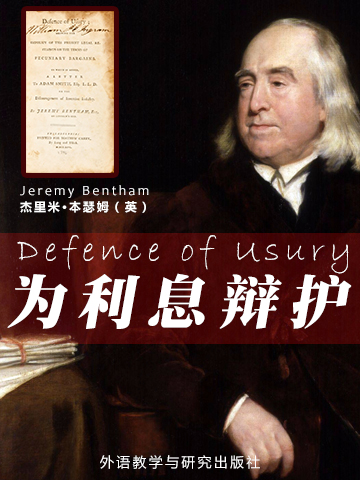Therefore, for the purpose of a market, it can never stand in need of manufactures. And it has been shewn that it can not stand in need of manufactures for the purpose of laying up capital. Therefore it can not stand in need of manufactures for any purpose.
Quere: when capital is plenty, what is the correlative that is comparatively scarce?
Hands adult and in actual readiness to work.
When capital is plenty, interest will be low, and real price of labour high.
When capital is scarce, interest will be high, and the price (real) of labour low, unless kept up by an unnatural occasional demand such as that by war.
What keeps down the quantity, and thence the value of capital is procreation, which multiplies little children who occasion expence before they can produce profit.
These children as they grow up, encrease the number of labourers -- thence they 1. keep down the price of labour, and 2. lessen the ratio of capital to hands.
The same causes that promote accumulation, promote procreation.
If accumulation goes on faster than procreation, capital will proportionably encrease, and the rate of interest proportionably sink.
This book is provided by McMaster University Archive for the History of Economic Thought in its series History of Economic Thought Books with number bentham1787 and published in 1787.The first, I shall mention, is that of precluding so many people, altogether, from the getting the money they stand in need of, to answer their respective exigencies. Think what a distress it would produce, were the liberty of borrowing denied to every body: denied to those who have such security to offer, as renders the rate of interest, they have to offer, a sufficient inducement, for a man who has money, to trust them with it.
- LETTER I. Introduction
- LETTER II Reasons for Restraint. — Prevention of Usury.
- LETTER III. Reasons for Restraint. — Prevention of Prodigality.
- LETTER IV Reasons for Restraint. — Protection of Indigence.
- LETTER V Reasons for Restraint.-Protection of Simplicity.
- LETTER VI Mischiefs of the anti-usurious laws.
- LETTER VII Efficacy of anti-usurious laws.
- LETTER VIII Virtual Usury allowed.
- LETTER IX Blackstone considered.
- LETTER X Grounds of the Prejudices against Usury.
- LETTER XI Compound Interest.
- LETTER XII Maintenance and Champerty.
- LETTER XIII To Dr. Smith, on Projects in Arts, &c.
- 书评 写书评
- 笔记
-
书评加载中...



20150120140451435740.jpg)


















 京公网安备 11010802032529号
京公网安备 11010802032529号
笔记加载中...